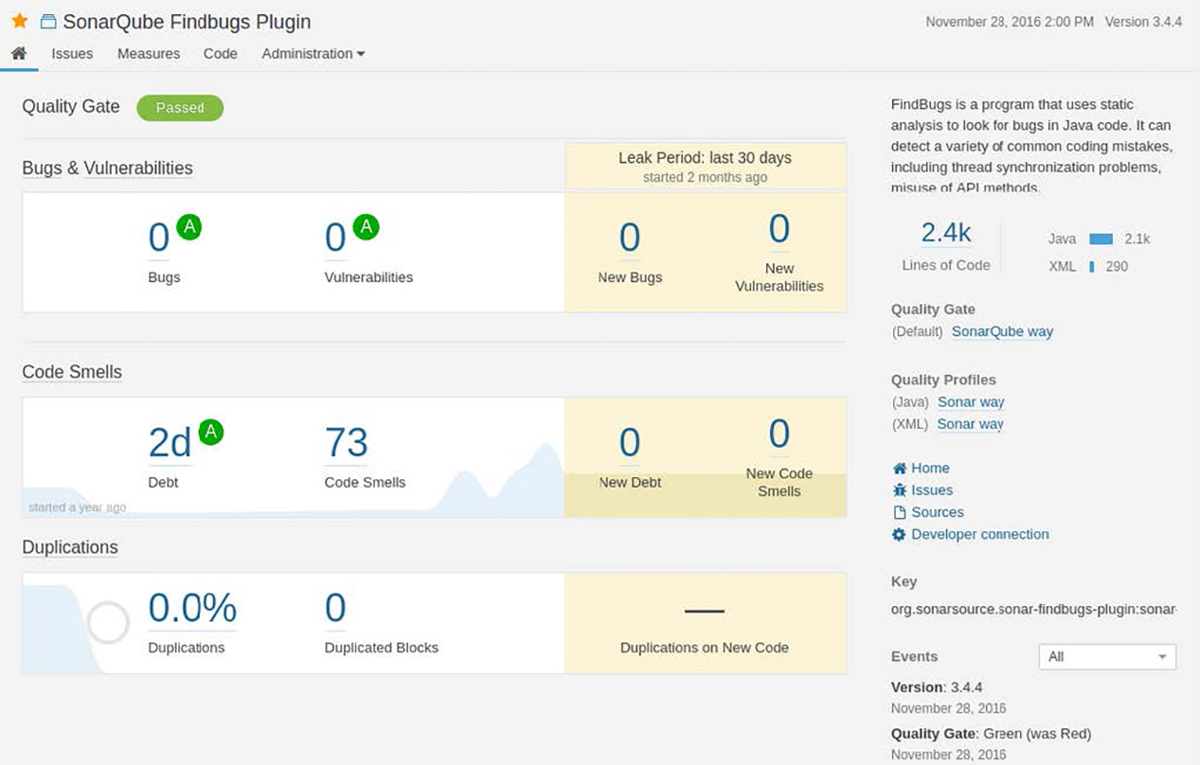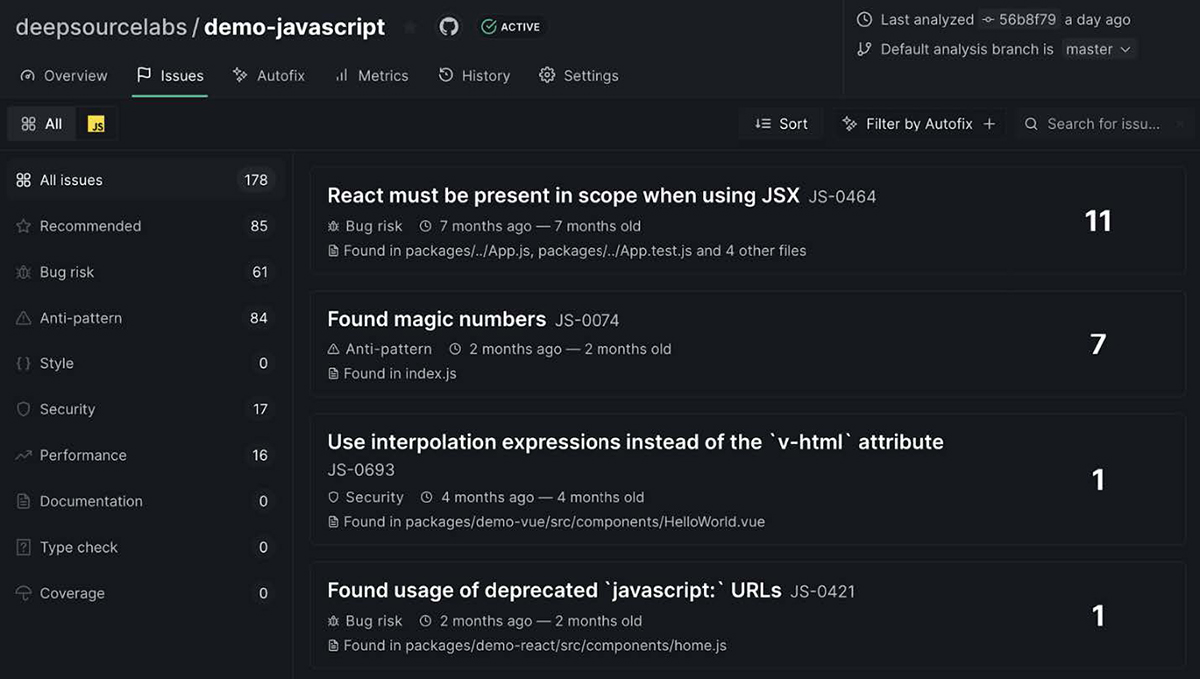Boost Security and Performance with Static Code Analysis
- 5 minutes read
Static code analysis is a powerful technique that enables you to detect vulnerabilities and inefficiencies within code early on, long before they reach production. Integrating static code analysis into your project can dramatically increase the quality and reliability of your software.

In an era where digital security has become a heightened concern, static code analysis has emerged as an essential practice for developers. Equally important is the role that static code analysis plays in evaluating the functional performance and quality of software. In this article, we explore the key benefits of static code analysis and provide insights into some of the most effective tools available to help you strengthen your codebase.
What Is Static Code Analysis?
Static Code Analysis, also known as Source Code Analysis or Static Program Analysis, is the process of analyzing code without executing it. It involves examining the source code for potential defects, security vulnerabilities, and adherence to coding standards. This analysis is typically performed using specialized tools known as Static Code Analyzers.
Importance of Static Code Analysis
The importance of Static Code Analysis cannot be overstated in modern software development. Here are some key reasons why it’s crucial:
- Early Detection of Issues: Static code analysis helps catch bugs, security vulnerabilities, and other issues early in the development process, reducing the cost and effort required to fix them later.
- Ensuring Code Quality: By enforcing coding standards and best practices, static code analysis helps you maintain consistent and high-quality code across projects.
- Enhancing Security: Static analysis tools can identify potential security vulnerabilities such as injection flaws, XSS vulnerabilities, and insecure configurations – helping to strengthen the security posture of applications.
- Compliance Requirements: Many industries have regulatory requirements regarding code quality and security. Static code analysis helps organizations meet these compliance requirements efficiently.
Automated vs. Manual Code Review
While manual code reviews involve human code inspection, static code analysis automates the process using specialized tools. Here’s how they differ:
- Automation: Static code analysis tools automatically analyze code, whereas manual code reviews require human intervention.
- Scalability: Static code analysis can analyze large codebases quickly, making it suitable for projects of any size. Manual reviews don’t scale effectively.
- Consistency: Static code analysis tools enforce consistent analysis rules across the codebase, ensuring that all code is evaluated using the same criteria.
- Speed: Static analysis can be performed rapidly, providing immediate feedback to developers for quicker bug fixes.
- Coverage: Static code analysis tools can analyze the entire codebase, including complex and rarely executed paths, providing comprehensive coverage.
- Integration: Static code analysis tools can be integrated into the development pipeline, automating the analysis process and seamlessly fitting into the development workflow.
While Static Code Analysis (SCA) is essential for detecting issues like code smells, bugs, and security vulnerabilities early in the development lifecycle, manual code reviews remain equally important for verifying the logic and correctness of business-specific requirements. SCA tools focus on identifying syntactic or structural issues in code, but they cannot assess whether the implemented logic aligns with the intended business rules.
In a manual code review, engineers evaluate how well the code addresses the functional requirements and ensure that the business logic is accurately reflected. This review also helps detect nuanced issues such as missed edge cases or improper workflows that automated tools might overlook. Therefore, to ensure robust software, manual code reviews should complement static code analysis by focusing on the logic, clarity, and completeness of the implementation.
CoStrategix recommends running both automated and periodic manual security tests with different tools to ensure your solution is catching new vulnerabilities, maturing its security posture, and validating that the results match expectations.
Two Types of Static Code Analysis
There are two main forms of static code analysis.
DAST testing includes performing external penetration tests and vulnerability scans that ensure the system is meeting industry standards. This is an external task that can be performed without impacting the development schedule. Unless the system goes through a major framework change, you can schedule penetration testing to run annually, and vulnerability testing to run monthly.
To ensure a solution doesn’t introduce a vulnerability with a new release, you can integrate a SAST tool into your development workflow and pipelines. This integration will help ensure that all deployments are devoid of known software or software dependency vulnerabilities before being deployed to production.
Static Code Analysis Tools - Overview of SonarQube and DeepSource
There are numerous Static Code Analysis tools available, each with its own set of features and capabilities. Popular STAT tools include Aikido Security, Cycode SAST, Checkmarx, Fortify, GitLab, DeepSource, SonarQube, and Veracode.
At CoStrategix, we primarily use SonarQube and DeepSource, depending on the programming language and code repository. Both offer code quality metrics, security vulnerability detection, and integration with popular development tools like GitHub and GitLab. When we need a comprehensive, customizable tool for large projects, especially in enterprise environments with a focus on security, governance, and integration with complex CI/CD pipelines, we tend to use SonarQube. When we want fast, actionable feedback integrated directly into your development workflow, with a focus on clean code, productivity, and modern language support, we use DeepSource.
SonarQube
SonarQube is an open-source platform for continuous inspection of code quality. It stands out for its comprehensive approach to detecting code smells, bugs, and security vulnerabilities across multiple programming languages. By integrating seamlessly with the build tools and CI/CD pipelines, SonarQube helps ensure our codebase remains robust, maintainable, and secure.
DeepSource
DeepSource is a cloud-based platform that offers automated code review and static analysis for Python, Go, Java, .NET, and JavaScript. It helps our developers identify and fix issues related to code quality, security, and performance by analyzing code changes in real-time. It integrates seamlessly into our development workflow, providing automated code reviews, actionable insights, and continuous feedback to improve the overall quality of the codebase.
Static Code Analysis is a critical component of modern software development, helping teams ensure code quality, security, and compliance. By leveraging automated analysis tools like SonarQube and DeepSource, development teams can streamline the development process, improve code quality, and deliver more reliable software products.
CoStrategix brings a frameworks-based approach to enterprise platform development. We have both development assets that accelerate your time to production, and processes such as Static Code Analysis that elevate our culture of quality and excellence on our team. Can we help you create or modernize your next application?
AI Strategy & Solutions – Elevate your business with advanced analytics
Data & Insights – Drive insights that lead to competitive advantage
Product Development – Build platforms that power unique digital capabilities
Platform & Technology Modernization – Modernize for stellar experiences, efficiency, and AI
Related Blog Posts
Best Practices for Getting Started with Azure DevOps
July 15, 2024
Building a Data-Driven Organization for an AI World
January 28, 2025
Experimenting with Large Language Models for Brand Matching
August 2, 2023









